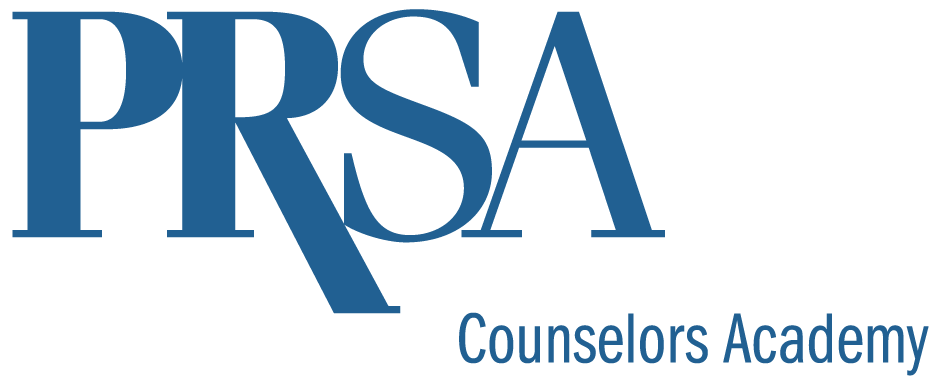By Rob Biesenbach
"Say it with me people: you can't spell "PRESENTATION" without "PR."
Last year I attended a conference breakout session on a topic that really interested me. The room was packed with like-minded people, all hoping to get something of value from the program.
Then the presenter kicked things off by talking about himself, and only himself, for what seemed like 10 minutes. He walked us through every detail of his career history — the job titles, the degrees, the recognition and awards. It was like a LinkedIn profile set to live narration.
Predictably, the mood in the room quickly shifted from anticipation to annoyance as he violated the first rule of public speaking: it’s not about you; it’s about the audience.
The kicker? This was a senior-level PR professional! Someone who should clearly know better. And as anyone who attends big industry events can tell you, it was not an isolated incident.
A Critical Skills Gap
According to a 2016 survey by the Holmes Report, 80 percent of PR executives view verbal communication skills as critical to success. If that’s true, then how come so many of us have sat through so many terrible presentations by PR people over the years?
Clearly there’s a disconnect.
I’ve found that too many in our industry take public speaking for granted. They assume that since they’re successful PR pros they must also be excellent presenters.
It does seem like a safe assumption, doesn’t it? After all, giving a presentation is about understanding your audience, articulating a concise, compelling message, telling an interesting story — all skills that we use every day on behalf of our clients and our businesses.
But for whatever reason, when many of our fellow practitioners get up to the podium, those principles go out the window.
Why Do Bad Presentations Happen?
So why do smart PR pros continue to give bad presentations? I’ve thought about this a lot and I don’t think there’s any one answer. It’s a combination of things:
- We accept the status quo. Dreadfully dull presentations have become an accepted feature of office life. We’re all living a Dilbert cartoon. When we expect so little of others we tend to demand less of ourselves.
- We don’t prepare. I hear people actually brag about how they threw their presentation together the night before or on the plane. Don’t our audiences deserve better?
- Expectations have changed. TED Talks have raised audience expectations for what a presentation should be. So even veteran presenters need to up their game and adjust to the changing landscape.
- We don’t train. Agencies have traditionally spent less on formal training than corporations do. I see this all the time. Agency prospects balk at training fees that big companies accept without blinking.
- Presenting is hard! There’s a reason great keynote speakers make upwards of $20,000 a speech. Some are naturally gifted, but most work really hard at it. The rest of us have a lot of other responsibilities to attend to.
What Can We Do About It?
So how do we ensure we and our teams get better at presenting? Here are a few thoughts:
- Observe others. I’ve given some terrible presentations in my time. But 20+ years of writing speeches for others and attending conferences has given me valuable insight into what works and what doesn’t. So start casting a more critical eye on the presentations, both good and bad, that you attend.
- Watch TED Talks. Most of our presentations will not be in the style of TED Talks, but there’s a lot to learn from them about storytelling, energy, emotional connection, and conciseness.
- Read. There’s a wealth of information online, much of it free. Here’s a running list I keep of articles and resources by some of my favorite experts: Nancy Duarte, David Meerman Scott, Mitch Joel and others.
- Practice: Toastmasters is a great place to regularly workshop your skills. Join a group near you. And try practicing at home and recording yourself on video. You may be surprised by what you see.
- Invest: If it’s worth doing, it’s worth paying for. Be willing to pony up the money for professional training where participants get direct, individual feedback on their content and technique. And if you don’t have the budget, there are plenty of low-cost online learning options available, like this $25 1-hour course by none other than Seth Godin. Watching is not the same as doing, but it’s a start.
Why Are Presentation Skills So Important?
Nancy Duarte famously said that a speech can change the world. And it can. That might be a lofty goal for most of our pitches, presentations and conference talks. But we can at least change our own world a little bit.
A successful presentation can help us win new business, rally a team, align employees, calm the public, sway a skeptic and countless other things.
As communications professionals we, of all people, should lead on this.
Through workshops, consulting and books, Rob Biesenbach helps business professionals become more skilled, confident communicators so they can enjoy more success — in the workplace, in the marketplace and in their everyday lives. He’s written hundreds of speeches for CEOs and other executives and is a professional speaker and trainer himself. His latest book is 11 Deadly Presentation Sins. If you’re coming to the Spring Conference, consider attending his breakout, 10 Advanced Speaking Tips to Super-charge Your Next Presentation.


